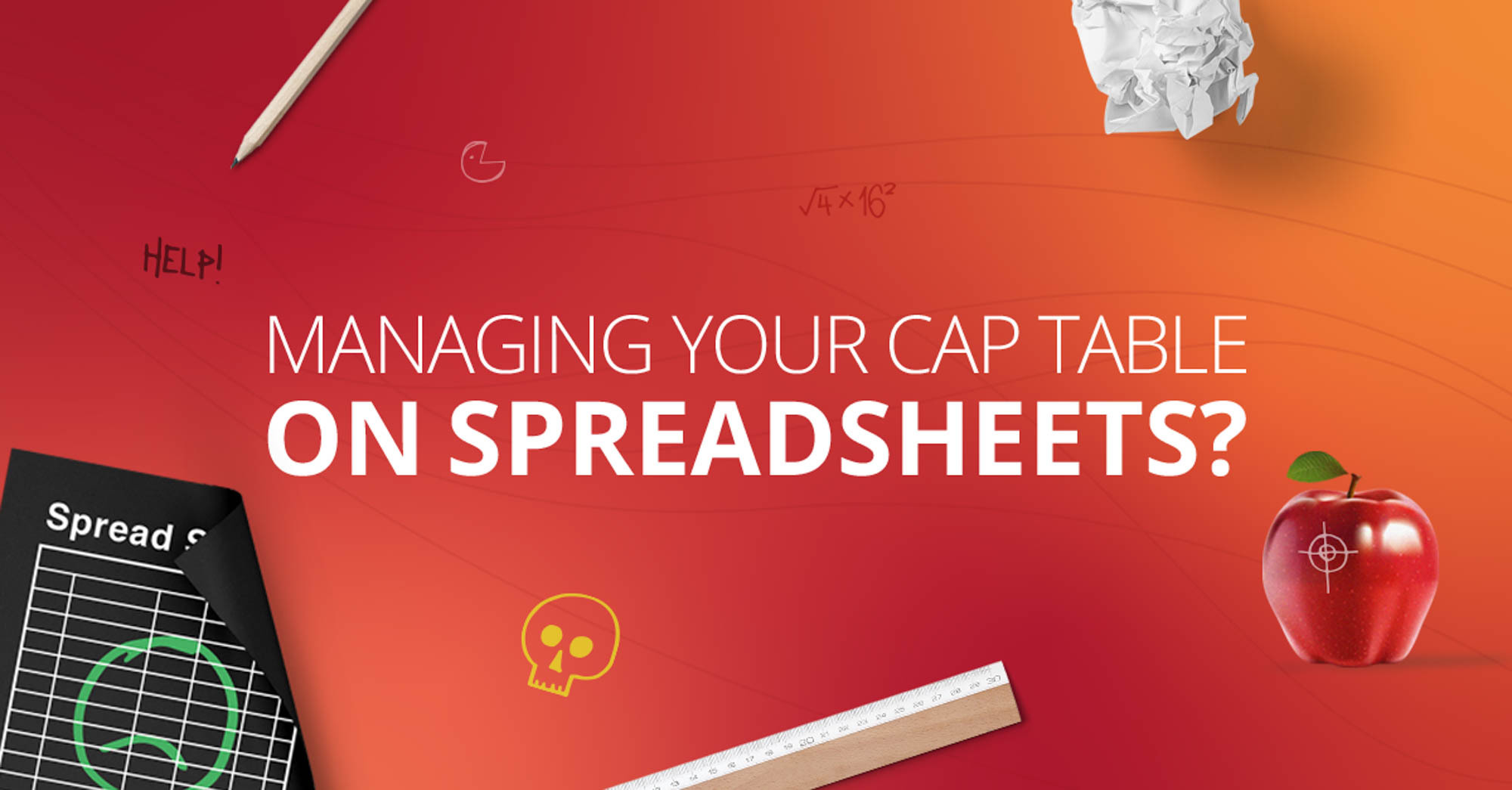When a startup business is young, and at its most basic, a Cap Table can often be a spreadsheet – which is fine to start with. As your company grows however you will likely become aware of issues associated with the Excel spreadsheet and look to shift to Cap Table management software.
Here are the dangers of using a spreadsheet for Cap Table management:
Prone to human error and inconsistent data
Excel is manual. Whoever is managing it will hopefully keep track of all the changes to shares and shareholders, joiners and leavers and more. This manual element can easily invite disasters like incorrect data entry, inconsistent formatting or simply forgetting to make updates. These issues are hard to avoid.
There is also no audit trail – a spreadsheet can’t show you where, or when, the problem happened.. Errors or oversights may remain hidden as the company grows. The danger of these mistake is that your entire ownership may now be false, potentially leading to losing investors and putting a big deal such as M&A at risk.
Heavy admin load to manage and maintain the data
Running a new startup is time consuming with a lot of jobs always needing to be done and important tasks vying for your attention. When working in Excel your Cap Table administrator has to manually key-in all the information, set up numerous formulas and conditions, and always update the most recent information.
Even without errors, data maintenance will take an increasing amount of time as updates are needed when changes in shareholders and funding rounds happen.
Difficult to scale with you after a few rounds of financing and hiring more employees
As your company grows, your share ownership will become more complex. Relying on a spreadsheet that is not built for on-going Cap Table management is unwise.
As more employee and share data is added, your spreadsheet formulas will become more complicated. You’ll need to maintain all these and make sure nothing gets broken. If you’re not Excel-savvy, it could be difficult to formulate everything yourself to reflect a real-time, accurate, visual representation when it’s required.
Multiple file versions circulating internally
Spreadsheets are easy to copy and share, which raises the danger of multiple versions of the same document circulating among internal colleagues, with changes made to one version not necessarily logged in another and so on.
This can create ambiguity and confusion around which version is definitive, potentially causing wrong decision making when seeking funding rounds and investments. Not knowing exactly how the ownership of your company is split at times like these can be disastrous.
Low level of employee engagement
A Cap Table contains employee equity. If participating employees don’t have access to their own assets for tracking and management, they won’t be able to see the values and benefits. Not seeing is not believing.
Even if you provide them with access to the Excel file, there’s no personalization, like you would get with proper, dedicated Cap Table management software, such as a customized user portal to enable users to view, track and transact their assets.
So, as you can see, managing your Cap Table in a spreadsheet could ultimately fail your employee ownership strategy by not being able to retain, reward and motivate employees.
Contact Global Shares, a J.P. Morgan company
We can work with you to optimize and automate your Cap Table management, minimizing the pitfalls associated with a Cap Table spreadsheet.
Not only do you get benefits from our software including one accurate, secure version and customizable user access settings, you also get access to a customer success manager who can assist you with complex issues, provide software training and help you connect with top global advisors for share plan design and 409a valuations etc
Contact Global Shares today to find out how we can help you set up or organize your Cap Table.
Please Note: This publication contains general information only and J.P. Morgan Workplace Solutions is not, through this article, issuing any advice, be it legal, financial, tax-related, business-related, professional or other. J.P. Morgan Workplace Solutions’ Insights is not a substitute for professional advice and should not be used as such. J.P. Morgan Workplace Solutions does not assume any liability for reliance on the information provided herein.



